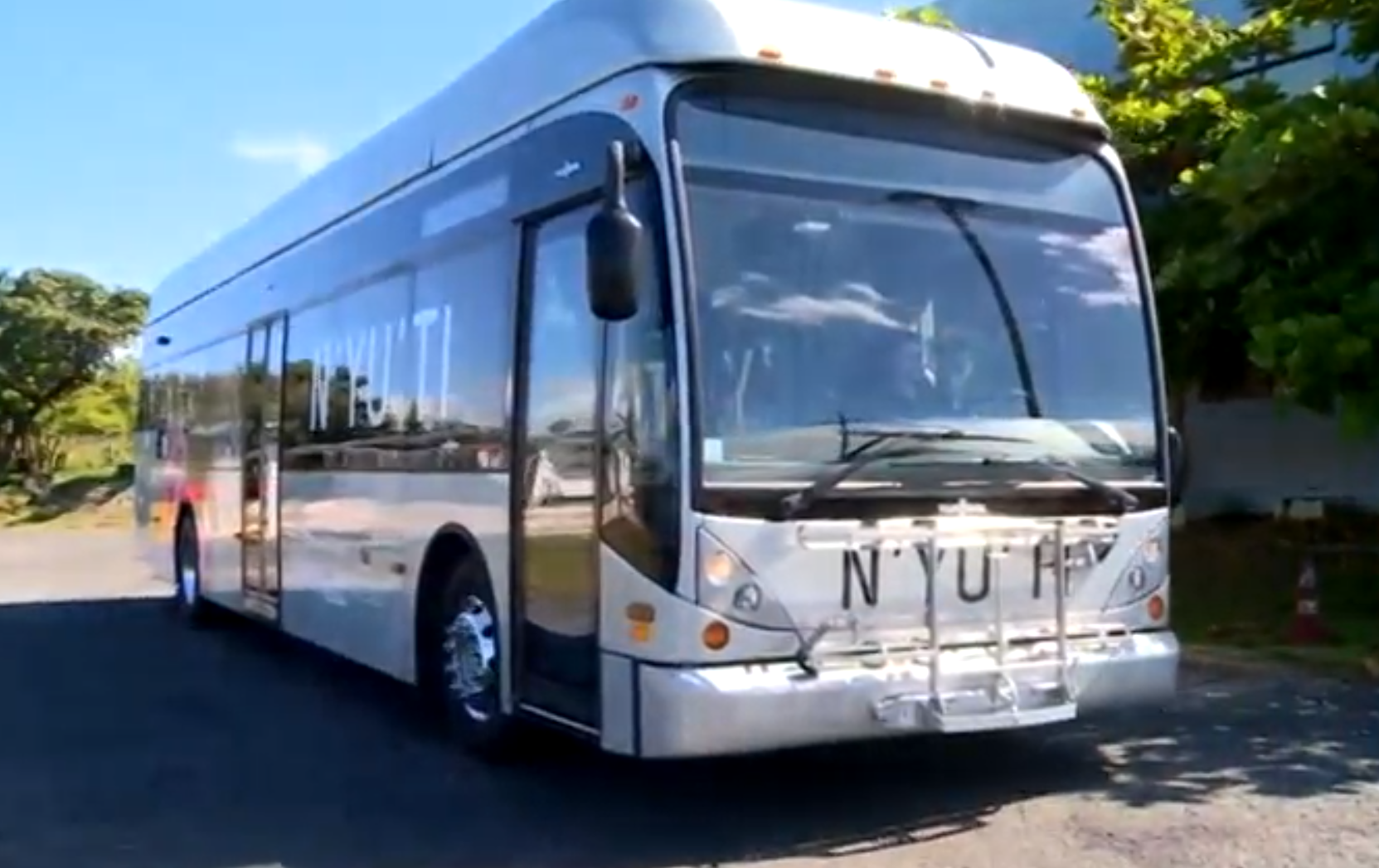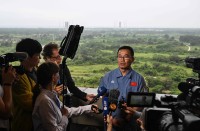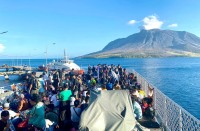
LIBERIA, Costa Rica (Reuters) — Costa Rica is test-driving its first hydrogen fuel cell electric buses as the Central American nation looks to move towards 100 percent renewable energy.
According to reports, solar panels and a wind turbine will be turned into hydrogen gas to then power the bus. The vehicle has a capacity for 40 passengers and can reach an approximate range of 338 kilometers (210 miles) on 38 kilograms (83 lbs) of compressed hydrogen.
The green bus arrived in July from the US Hybrid Corporation’s test facility in the U.S. state of Connecticut. The new technology is backed by the Ad Astra Rocket Company, led by Costa Rican-born former NASA astronaut Franklin Chang.
“This is the hydrogen station that is part of the sustainable transportation ecosystem that we are inaugurating today. In this plant renewable energy from the solar panels and the wind turbine is turned into hydrogen gas inside the station through the electrolysis of water. And then that way we can store the electrical energy until we need it. The gas is then pumped into the bus, which is stored into tanks, and then whenever the bus needs to move, gas is turned back into electricity that drives the electric motors. The only by-product is pure water,” Ad Astra Rocket engineer Juan Ignacio Del Valle said.
“Today is a historic day in Costa Rica with the first bus to use hydrogen in its engine, 100 percent renewable and with technology that has been developed in Guanacaste (region) by Franklin Chang’s team, in collaboration with the private sector and the government. This is an occasion when Costa Rica affirms its will to move towards zero carbon emissions,” Del Valle added.
The Hydrogen Ecosystem Project, initiated in 2012 in a joint venture between Ad Astra and Costa Rica’s RECOPE, a government-owned petroleum refinery, sees public funds invested into an energy infrastructure for the country to reduce Costa Rica’s dependence on imported oil. The electric bus project reportedly cost some U$4 million and the first rides are to take place in the city of Liberia in June.
According to official figures, Costa Rica hopes to be a carbon-neutral nation by 2021, with government schemes to get people away from traditional petrol-powered cars and broadening its hydropower grid.







